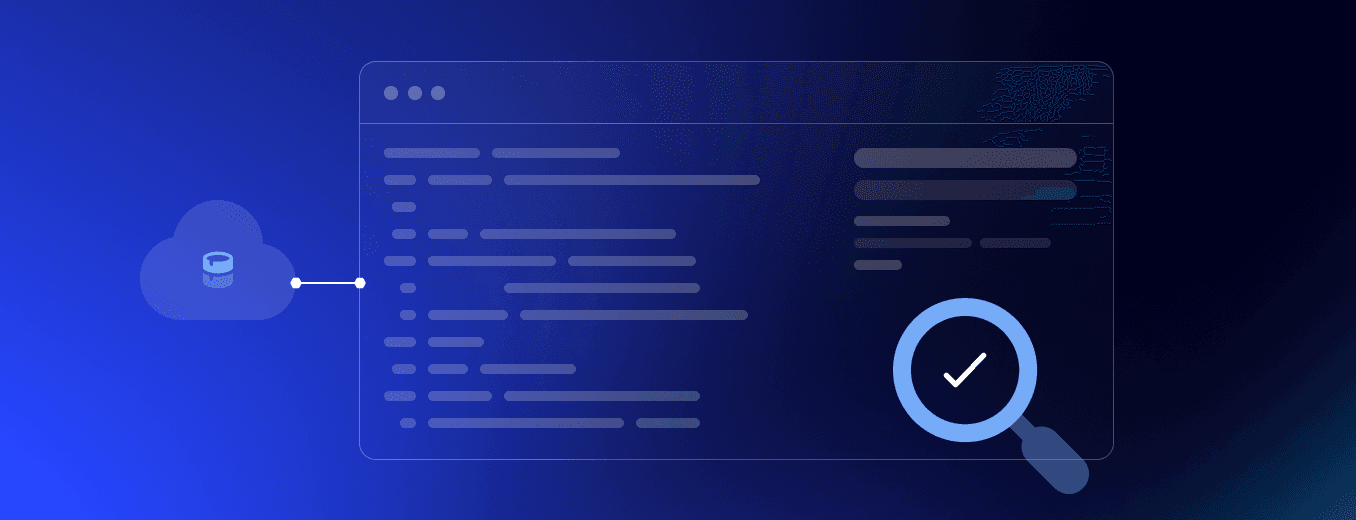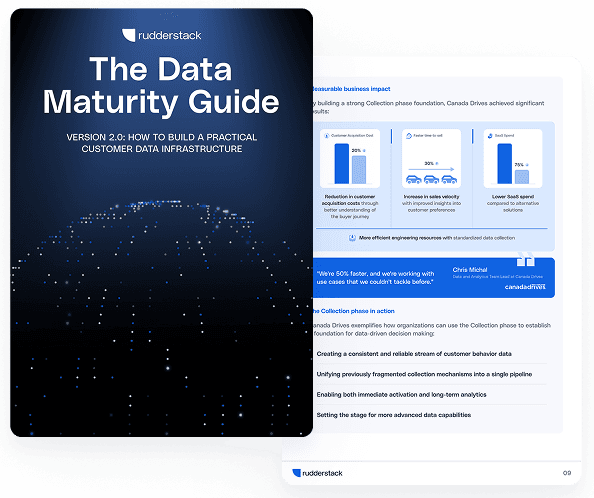Data warehouse testing tools: Top 9 picks with use cases

Data warehouses continue to grow in size and complexity, containing crucial business information for data-driven decision making. Manual testing of these platforms is tedious, time-consuming, and prone to human error. Even large testing teams struggle to cover the myriad of use cases and complex data transformations these systems now incorporate.
As data volumes expand and transformation logic becomes more sophisticated, the risk of undetected errors also increases—potentially leading to flawed analytics, compliance issues, or misguided business strategies.
This guide explores the top data warehouse testing tools that automate validation processes, reduce testing time, and ensure data integrity across your entire pipeline. We'll cover automated testing fundamentals, review leading tools with their ideal use cases, and help you choose the right solution for your organization, whether you manage a small analytics environment or a global-scale data platform.
Main takeaways:
- Automated data testing reduces manual effort by 80% while improving accuracy and enabling continuous validation throughout your ETL pipeline
- Top open-source tools like Deequ and Great Expectations excel for Python/Spark environments, while commercial solutions like Bigeye and Monte Carlo offer enterprise-ready monitoring
- Choose tools based on your tech stack: Deequ for Spark pipelines, Great Expectations for Python workflows, and Dataform for SQL-based transformations
- Implement testing at multiple stages: unit tests for components, integration tests for data flow, and end-to-end validation for complete workflows
- Cultural shift is critical: Success requires executive buy-in, dedicated testing roles, and integration with existing CI/CD pipelines
Common types of data warehouse testing
Before choosing a tool, it helps to understand the main categories of testing that ensure your warehouse data is accurate, consistent, and ready for analysis. A strong testing strategy typically combines several of these approaches and embeds them into CI/CD pipelines for continuous assurance.
- Unit testing: Validates individual components like ETL scripts, queries, or transformations to confirm they run as expected.
- Data quality testing: Checks for completeness, accuracy, and consistency across sources so errors don’t propagate downstream.
- Schema testing: Confirms table structures, constraints, and relationships align with design specifications, preventing schema drift.
- Integration testing: Ensures data flows correctly between connected systems—source, staging, and warehouse—without breaking.
- User acceptance testing (UAT): Verifies that reports, dashboards, and queries meet business requirements before going live.
- Performance and stress testing: Measures query response times, throughput, and stability under both typical and peak workloads.
- Security testing: Validates encryption policies, role-based access controls, and other safeguards to prevent vulnerabilities.
- Regression testing: Confirms that schema changes or pipeline updates don’t disrupt existing workflows or reporting.
- API testing: Ensures warehouse APIs reliably deliver accurate data to downstream apps with acceptable latency.
A mature testing strategy often combines several of these approaches, embedding them into continuous integration/continuous delivery (CI/CD) pipelines for ongoing assurance.
Learn how leaders ensure data quality
See how top companies build analytics pipelines on trustworthy, test-ready data. Explore real-world strategies for automated validation, governance, and warehouse testing.
Top nine data warehouse testing tools in 2025
The best tools for data testing will depend on your specific needs and requirements. However, nine popular options, with their key features and ideal use cases, include:
1. QuerySurge
QuerySurge is a purpose-built data testing solution designed specifically for validating ETL processes and ensuring data integrity in big data and data warehouse environments. Ideal for QA teams and data engineers. QuerySurge boasts customers in 17 countries that use its big data testing, data warehouses, and BI report services.
Key features:
- Automated source-to-target data validation
- Integration with DevOps/CI pipelines
- Support for SQL, Hadoop, and NoSQL platforms
- Reusable test assets and scheduling
Pros:
- Strong automation and reporting capabilities
- Scalable for large data volumes
- Good integration with Jenkins and other CI/CD tools
Cons:
- Steeper learning curve for non-technical users
- Higher cost for smaller teams
Ideal use case: Enterprises managing complex ETL pipelines and needing continuous regression testing.
2. Datagaps ETL Validator
Datagaps ETL Validator focuses on validating transformations, business rules, and data completeness across pipelines. It is built for QA and data validation teams that want robust automation without extensive coding.
Key features:
- Built-in data comparison and reconciliation
- Rule-based validation engine
- Data masking support
- Support for cloud and on-prem data platforms
Pros:
- Intuitive UI for rule creation
- Strong support for compliance testing
- Minimal coding required
Cons:
- Limited open-source integrations
- Reporting features may feel basic
Ideal use case: Teams focused on validating business rules and transformation logic across data sources.
Deliver test-ready data to your warehouse
Testing is only as good as the data that enters your warehouse. RudderStack ensures your pipelines deliver clean, schema-compliant, privacy-safe data so your validation tools work with confidence.
3. iCEDQ
iCEDQ is a data testing and monitoring platform that supports real-time validation across databases, files, and APIs. It’s designed for governance-focused teams in fast-moving or regulated industries.
Key features:
- Rule-based test automation
- Built-in data observability and monitoring
- Audit logs and anomaly alerts
- Parallel test execution for performance
Pros:
- Strong audit and compliance features
- Scalable architecture
- Broad platform support
Cons:
- Complex setup for smaller organizations
- UI can feel outdated
Ideal use case: Data governance teams that need ongoing validation across fast-moving or regulated data pipelines. The top industries using iCEDQ are Technology and Services (23%), Insurance (14%), and Financial Services (14%).
4. RightData
RightData is a self-service testing and reconciliation platform that empowers business analysts, stewards, and engineers to validate data without heavy coding. It’s designed for ease of use and quick adoption.
Key features:
- No-code test creation
- Schema and data reconciliation tools
- Visualization dashboards
- Integration with Snowflake, Redshift, BigQuery, and more
Pros:
- Business-user-friendly interface
- Fast onboarding and setup
- Affordable for mid-size teams
Cons:
- Limited advanced transformation testing
- Might not scale well for very large datasets
Ideal use case: Teams that want to empower analysts to participate in testing without writing code.
5. BiG EVAL
BiG EVAL offers flexible test automation for BI professionals and developers, supporting validation rules, lifecycle testing, and API validation. Its modular approach makes it highly customizable.
Key features:
- Modular test library
- Rule-based automation
- API testing support
- Visual rule designer
Pros:
- Versatile and customizable
- Strong logging and traceability
- Developer-friendly environment
Cons:
- Requires technical knowledge for setup
- Not as widely supported as larger vendors
Ideal use case: Teams building custom workflows or needing hybrid validation across BI systems.
6. Informatica Data Validation
Informatica Data Validation is tightly integrated into the Informatica ecosystem, enabling end-to-end validation within ETL workflows. It’s best suited for large teams already using Informatica PowerCenter.
Key features:
- Native PowerCenter integration
- Reusable test components
- End-to-end test automation
- Comprehensive metadata capture
Pros:
- Seamless integration for Informatica shops
- Built-in governance features
- Scalable for large enterprise deployments
Cons:
- Locked into the Informatica ecosystem
- Less useful for teams not using PowerCenter
Ideal use case: Enterprises already using Informatica for ETL and seeking native validation.
7. Talend
Talend is an open-source data integration platform with built-in testing and data quality features. It’s widely used by engineers comfortable with low-code development for custom pipelines.
Key features:
- Built-in data profiling
- Integration with data quality components
- ETL process validation
- Support for big data and cloud platforms
Pros:
- Open-source flexibility
- Strong community support
- Well-suited for custom pipelines
Cons:
- Limited UI-driven testing compared to dedicated tools
- Requires development expertise
Ideal use case: Engineering teams wanting open-source control over both data transformation and validation.
8. Apache JMeter
Apache JMeter is an open-source tool best known for load and performance testing, but also widely used for validating databases and APIs under stress. It’s a developer-oriented solution with strong extensibility.
Key features:
- Load and performance testing
- JDBC, FTP, and SOAP/REST support
- Custom scripting with JSR223 or Groovy
- Result visualizations and logging
Pros:
- Free and highly extensible
- Great for stress-testing data services
- Large community
Cons:
- Not purpose-built for data warehouse validation
- Requires scripting and setup effort
Ideal use case: Technical teams testing data warehouse APIs or simulating high-load database activity.
Build a reliable, scalable data infrastructure
Streamline ingestion, enforce governance, and keep your warehouse test-ready at all times. See how RudderStack powers enterprise-grade data quality from day one.
9. Microsoft Azure Data Factory
Azure Data Factory is a cloud-native integration service that includes built-in monitoring and validation features. It’s designed for teams within the Azure ecosystem building ELT/ETL pipelines.
Key features:
- Visual pipeline designer
- Data flow monitoring
- Source-target validation
- Integration with Azure Synapse and other services
Pros:
- Seamless Azure ecosystem support
- Built-in scheduling and monitoring
- Auto-scaling in the cloud
Cons:
- Limited validation depth compared to dedicated QA tools
- Locked to the Azure platform
Ideal use case: Teams running Microsoft-based data stacks that want built-in integration and basic validation.
Adoption pitfalls & fixes
Even the best data warehouse testing tools won’t deliver value if adoption challenges aren’t addressed. Teams often encounter three common hurdles:
- Limited testing expertise: Many data engineers don’t have formal QA backgrounds, which can lead to incomplete coverage or poorly designed tests. The solution is to provide targeted training on testing frameworks and best practices, or hire QA professionals with data automation experience. Cross-training engineers and testers also helps build shared accountability for data quality.
- A feature-first culture: Product teams often prioritize shipping new features over validating data quality, leaving testing as an afterthought. The fix is to embed testing directly into CI/CD workflows so it becomes a standard deployment step. Treat failed data quality checks as blockers—just like unit test failures—to ensure validation isn’t skipped.
- Integration friction: Some tools don’t align easily with custom ETL/ELT patterns or niche data sources, leading to delays and inefficiencies. The best way forward is to start with a small, high-impact pipeline and run parallel testing to prove value. Use those results to refine your approach and expand adoption gradually.
Tackling these pitfalls early helps teams build confidence, achieve quick wins, and ensure sustainable adoption without slowing delivery timelines.
Key criteria for choosing the best data warehouse testing tools
Selecting the right testing solution requires aligning tool capabilities with your workflows and governance needs. Look for tools that offer:
- Automation support: Look for tools that enable scheduled, repeatable testing across your pipelines. Automated triggers in CI/CD workflows help maintain data quality without manual intervention, ensuring tests run consistently after every data load or transformation.
- Source-to-target reconciliation: Essential for verifying that data remains accurate and consistent as it moves between systems. The best tools allow field-level comparisons, aggregate checks, and custom matching logic to detect mismatches before they reach production.
- Schema validation: Your tool should confirm that table structures, columns, constraints, and relationships are correct. Automated schema checks catch unauthorized changes early, preventing broken dashboards or downstream application errors.
- Business rule testing: This validates custom logic, such as ensuring no duplicate accounts exist or total revenue matches the sum of line items. The ability to encode and enforce domain-specific rules helps ensure your analytics align with business expectations.
- Performance testing: Simulating heavy query loads helps you identify bottlenecks before peak demand. Tools that can model concurrent access and large data volumes will ensure your warehouse can handle scaling needs.
- CI/CD integration: A tool that fits seamlessly into DevOps workflows enables continuous data quality checks alongside application deployments, making data testing part of the standard release cycle.
- Scalability: Ensure the tool can handle your largest datasets without slowing down, whether that means millions of rows or complex multi-table joins.
- Data masking/privacy: For compliance and security, the tool should support masking or anonymizing sensitive fields in test environments, reducing risk while still enabling meaningful validation.
Build smarter pipelines with RudderStack
The right data warehouse testing tool helps ensure your analytics, reports, and machine learning models are built on a foundation of trustworthy, high-quality data. But testing is only as effective as the data that flows into your warehouse.
That's where RudderStack comes in.
By delivering clean, real-time, schema-compliant customer data directly into your warehouse, RudderStack removes the complexity from data ingestion and transformation, so your testing tools can do their job with confidence. Whether you're validating pipelines, monitoring data quality, or enforcing governance, RudderStack gives your team the reliable data infrastructure needed to scale analytics across the enterprise.
Request a demo to see how RudderStack delivers test-ready data to your warehouse.
Published:
October 29, 2025








